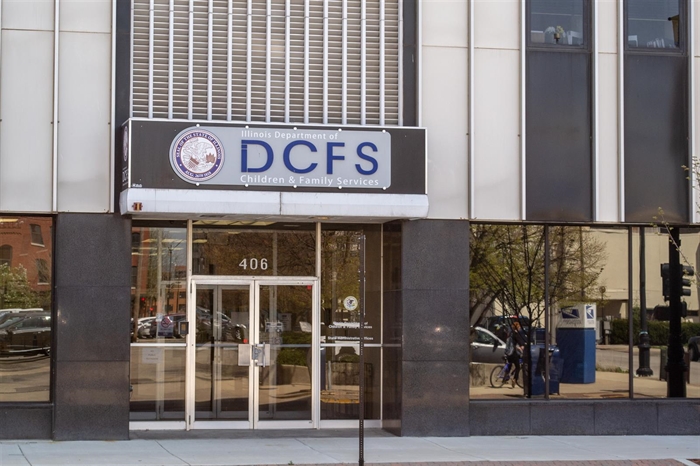SPRINGFIELD — A 2019 study found that about 30% of youth living in foster care identify as LGBTQ+ compared to about 11% not in foster care. LGBTQ+ youth in care are also at higher risk for abuse and harassment.
To address this issue, the Illinois Department of Child and Family Services is enhancing training and resources for both staff and foster parents that targets biases and educates on LGBTQ+ youth’s experience in care.
Listen to this interview here.
Marla Courts is the chief of LGBTQI+ services for Illinois DCFS. She spoke about possible explanations for the overrepresentation of LGBTQ+ youth in foster care and described some of the changes and training Illinois DCFS is implementing to better support LGBTQ+ youth.
Marla Courts: “There is an overrepresentation. It just depends on possibly some aspects of when a youth does decide to come out and say that they are LGBTQ youth status. Of course, that can happen anytime during the custody situation or during the youth’s time in care, and it can happen after a foster parent has already accepted a youth into their home. So there’s a number of factors that affect the overrepresentation and the risks associated with our LGBTQI+ population.”
Carolina Garibay: “And then how might the experience of a child in the foster care system who does identify as LGBTQ+ differ from a child who maybe doesn’t identify as LGBTQ+?”
MC: “So the experience can be the same, or it can be different. Different in a way of it depends if the home is inclusive and affirming. There are a number of factors that may play as to why the experience may be different, but experiences with all of our youth, including LGBTQ, can be the same. Again, it is also dependent upon that home, their practices and their beliefs and the biases that come into play. As you know, being LGBTQ+ you face a lot of different biases discrimination, homophobia, etc., peer conflict school issues, possibly more than the average young person that does not identify as that or maybe has not came out yet.”
CG: “And I understand that Illinois DCFS is enhancing training and resources to support LGBTQ+ youth in foster care. I was wondering if you could go into a few specifics of that training or resources and maybe give an example of something that you’re working on to enhance that and on what levels you’re doing that.”
MC: “Well, right now I can let you know that the department is working with the Human Rights Campaign, and we are working to blaze new trails and enhance, again, our practices, and we have partnered with them to complete our first training. We do have a webinar. The department has policies already in place. Those policies are being enhanced, and then the webinar. We have already had over 4,000 staff trained on LGBTQI+ affairs, and that includes our partnering agencies that staff and, you know, internal division.”
CG: “And then beyond Pride Month as well and continuing into the rest of the year and years ahead, what else will DCFS be doing to continue to support and encourage kids in LGBTQ+ youth in foster care?”
MC: “Yes, thank you, so we have great future goals in place. We will continue to partner with our experts and LGBTQI partnering agencies, community allies, etc., and we are very focused on using youth voice. We are working to put together a group so that they can – the LGBTQI population – can voice their concerns, questions, wants and needs. We’re looking forward to future events being held so that, you know, everyone can just flourish, and we can see the positive growth and change within the department structure and unit, and keeping our kids safe and happy. That’s the goal.
Visit the Illinois DCFS website for information on becoming a foster parent.

